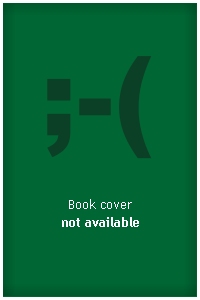
Code: 33276895
Controlling Corruption
by Rothstein, Bo (University of Gothenburg, University of Gothenburg, August Roehss Chair in Political Science)
This book presents a radically new approach of how societies can bring corruption under control. Since the late 1990s, the detrimental effects of corruption to human well-being have become well established in research. This has ... more
- Language:
 English
English - Binding: Hardback
- Number of pages: 232
Publisher: Oxford University Press, 2021
- More about this

145.99 €

Low in stock at our supplier
Shipping in 13 - 18 days
Potřebujete více kusů?Máte-li zájem o více kusů, prověřte, prosím, nejprve dostupnost titulu na naši zákaznické podpoře.
Add to wishlist
You might also like
-

The Book of Bill
23.70 € -14 % -

Gravity Falls Journal 3
16.44 € -23 % -

Berserk Deluxe Volume 1
44.38 € -11 % -

Pumpkin Spice Cafe
16.94 € -15 % -

Berserk Deluxe Volume 2
52.25 € -

White Nights
3.93 € -15 % -

It ends with us
8.67 € -19 % -

48 Laws Of Power
17.95 € -9 % -

A Little Life
17.55 € -

Atomic Habits
15.93 € -14 % -

Berserk Deluxe Volume 3
48.82 € -3 % -

Jujutsu Kaisen, Vol. 23
10.69 € -18 % -

Surrounded by Idiots
10.48 € -29 % -

The 48 Laws of Power
24.51 € -5 % -

Gilmore Girls: The Official Advent Calendar
28.85 € -18 % -

Berserk Deluxe Volume 4
45.19 € -10 % -

Iron Flame
16.23 € -18 % -

English File Fourth Edition Intermediate (Czech Edition)
24.31 € -12 % -

The Official Stardew Valley Cookbook
22.39 € -19 % -

Berserk Deluxe Volume 5
50.44 € -

A Good Girl's Guide to Murder
8.16 € -14 %
Give this book as a present today
- Order book and choose Gift Order.
- We will send you book gift voucher at once. You can give it out to anyone.
- Book will be send to donee, nothing more to care about.
More about Controlling Corruption
You get 366 loyalty points
 Book synopsis
Book synopsis
This book presents a radically new approach of how societies can bring corruption under control. Since the late 1990s, the detrimental effects of corruption to human well-being have become well established in research. This has resulted in a stark increase in anti-corruption programs launched by international organizations such as the World Bank, the African Union, the EU, as well as many national development organizations. Despite these efforts, evaluations of the effects of these anti-corruption programs have been disappointing. As it can be measured, it is difficult to find substantial effects from such anti-corruption programs. The argument in this book is that this huge policy failure can be explained by three factors. Firstly, it argues that the corruption problem has been poorly conceptualized since what should count as the opposite of corruption has been left out. Secondly, the problem has been located in the wrong social spaces. It is neither a cultural nor a legal problem. Instead, it is for the most part located in what organization theory defines as the 'standard operating procedures' in social organizations. Thirdly, the general theory that has dominated anti-corruption efforts — the principal-agent theory — is based on serious misspecification of the basic nature of the problem. The book presents a reconceptualization of corruption and a new theory — drawing on the tradition of the social contract - to explain it and motivate policies of how to get corruption under control. Several empirical cases serve to underpin this new theory ranging from the historical organization of religious practices to specific social policies, universal education, gender equality, and auditing. Combined, these amount to a strategic theory known as 'the indirect approach'.
 Book details
Book details
145.99 €
- Full title: Controlling Corruption
- Subtitle: The Social Contract Approach
- Author: Rothstein, Bo (University of Gothenburg, University of Gothenburg, August Roehss Chair in Political Science)
- Language:
 English
English - Binding: Hardback
- Number of pages: 232
- EAN: 9780192894908
- ISBN: 0192894900
- ID: 33276895
- Publisher: Oxford University Press
- Weight: 476 g
- Dimensions: 234 × 156 × 20 mm
- Date of publishing: 18. March 2021
Collection points Bratislava a 2642 dalších
Copyright ©2008-24 najlacnejsie-knihy.sk All rights reservedPrivacyCookies


 15549 collection points
15549 collection points Delivery 2.99 €
Delivery 2.99 € 02/210 210 99 (8-15.30h)
02/210 210 99 (8-15.30h)